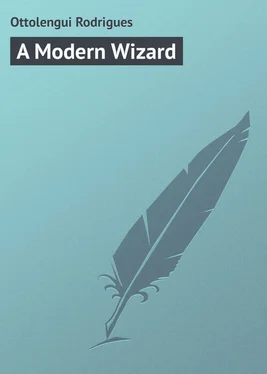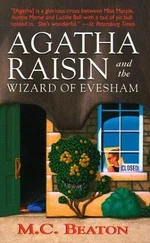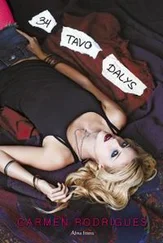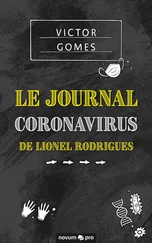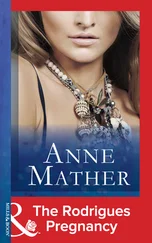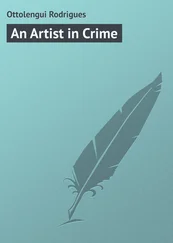Rodrigues Ottolengui - A Modern Wizard
Здесь есть возможность читать онлайн «Rodrigues Ottolengui - A Modern Wizard» — ознакомительный отрывок электронной книги совершенно бесплатно, а после прочтения отрывка купить полную версию. В некоторых случаях можно слушать аудио, скачать через торрент в формате fb2 и присутствует краткое содержание. Жанр: Классический детектив, foreign_detective, foreign_prose, на английском языке. Описание произведения, (предисловие) а так же отзывы посетителей доступны на портале библиотеки ЛибКат.
- Название:A Modern Wizard
- Автор:
- Жанр:
- Год:неизвестен
- ISBN:нет данных
- Рейтинг книги:3 / 5. Голосов: 1
-
Избранное:Добавить в избранное
- Отзывы:
-
Ваша оценка:
- 60
- 1
- 2
- 3
- 4
- 5
A Modern Wizard: краткое содержание, описание и аннотация
Предлагаем к чтению аннотацию, описание, краткое содержание или предисловие (зависит от того, что написал сам автор книги «A Modern Wizard»). Если вы не нашли необходимую информацию о книге — напишите в комментариях, мы постараемся отыскать её.
A Modern Wizard — читать онлайн ознакомительный отрывок
Ниже представлен текст книги, разбитый по страницам. Система сохранения места последней прочитанной страницы, позволяет с удобством читать онлайн бесплатно книгу «A Modern Wizard», без необходимости каждый раз заново искать на чём Вы остановились. Поставьте закладку, и сможете в любой момент перейти на страницу, на которой закончили чтение.
Интервал:
Закладка:
After taking the oath, Dr. Meredith sat with his eyes upon the floor until Mr. Munson began to question him. Then he looked straight at the lawyer, as though upon him he relied for protection.
"You attended Miss Mabel Sloane in her last illness, I believe?" began
Mr. Munson.
"I did."
"How were you called in to the case?"
"I was called in consultation by Dr. Fisher."
"You were sent for by Dr. Fisher! Then I am to understand that you and he were good friends?"
"The best of friends."
"And are so still?"
"I think so. Yes."
"And Dr. Medjora. Did you know him before your connection with this case?"
"Only slightly."
"Were you present when Miss Sloane died?"
"I was present for half an hour before she died."
"Exactly! And you remained with her until she was actually dead?"
"Yes, sir. I saw her die."
"Of what did she die?"
"I object!" cried Mr. Bliss, springing to his feet and interrupting the prosecution for the first time.
"State your objection," said the Recorder, tersely.
"Your Honor," began Mr. Bliss, "I object to the form of the question. The whole point at issue is contained in it, and I contend that this witness is not qualified to answer. If he were, the trial might end upon his doing so."
"The witness is only expected to testify to the best of his belief," said the Recorder.
"Very true, your Honor. I only wish it to go to the jury in the proper form. If they understand that this witness does not know of what Miss Sloane died, but simply states what he thinks, I shall be perfectly satisfied."
"You may as well modify your question, Mr. Munson," said the Recorder. Thus Mr. Bliss scored a little victory, which at once convinced the older lawyers present that, though young, he would prove to be shrewd to grasp the smallest advantage. His object had evidently been to belittle the value of the answer, before it was made, by thus calling attention so prominently to the fact that Dr. Meredith could not know positively what he was about to charge.
"In your opinion, what caused the death of Miss Sloane?" This was the new question formulated to meet the objection raised.
"She died of morphine poisoning!" replied Dr. Meredith.
"You mean you think she died of morphine poisoning?" interjected Mr.
Bliss.
"Kindly wait until you get the witness before you begin your cross-examination!" said Mr. Munson, with a touch of asperity. Mr. Bliss merely smiled and kept silent, satisfied that he had produced his effect upon the jury.
"Will you state why you conclude that Miss Sloane died of morphine poisoning?" continued Mr. Munson.
"I observed all the characteristic symptoms of morphine narcosis prior to her death, and the nature of the death itself was consistent with my theory."
"Please explain what the symptoms of morphine poisoning are?"
"Cold sweat, slow pulse, stertorous breathing, a gradually deepening coma, contracted pupils, which, however, slowly dilate at the approach of death, which is caused by a paralysis of the respiratory centres."
"Did you observe any of these symptoms in Miss Sloane?"
"Yes. Practically all of them."
"And would these same symptoms occur in any other form of death, except from morphine poisoning?"
"They would not. Of course they do not apply to morphine only. They are generally diagnostic of opium poisoning."
"But morphine is a form of opium, is it not?"
"Yes. It is one of the alkaloids."
"Now, Doctor, one more question. You have testified that you attended this girl in her last illness; as a physician you are familiar with death from diphtheria; you have stated what are the symptoms of morphine, or opium poisoning, and that you observed them in this case; further, that an identical set of symptoms would not occur in any other disease known to you; now, from these facts, what would you say caused the death of Miss Mabel Sloane?"
"I should say that she died of a poisonous dose of some form of opium, probably morphine."
"You may take the witness," said Mr. Munson, as he sat down. Mr. Bliss spoke a word to Doctor Medjora, and then holding a few slips of paper, upon which were notes, mainly suggestions which had been written by the prisoner himself, and passed to his counsel unperceived by the majority of those present, he faced the witness, whose eyes at once sought the floor.
"Doctor," began Mr. Bliss, "you have stated that you are only slightly acquainted with Dr. Medjora. Is that true?"
"I said that I was only slightly acquainted with him prior to my being called to attend Miss Sloane. Of course I know him better now."
"But before the time which you specify, you did not know him?"
"Not intimately."
"Oh! Not intimately? Then you did know him? Now is it not a fact that you and Dr. Medjora were enemies?"
"I object!" exclaimed Mr. Munson.
"I wish to show, your Honor," said Mr. Bliss, "that this witness has harbored a personal spite against our client, and that because of that, his mind was not in a condition to evolve an unprejudiced opinion about the illness of Miss Sloane."
"I do not think that is at all competent, your Honor," said Mr. Munson. "The witness has testified to facts, and even if there were personal feeling, that would not alter facts."
"No, your Honor," said Mr. Bliss, quickly, "facts are immutable. But a prejudiced mind is as an eye that looks through a colored glass. All that is observed is distorted by the mental state."
"The witness may answer," said the Recorder.
At the request of Mr. Bliss the stenographer read the question aloud, and the witness replied.
"Dr. Medjora and myself were not enemies. Certainly not!"
"Had you not had a controversy with him upon a professional point?"
"I had an argument with him, in a debate, just as occurs in all debates."
"Precisely! But was not this argument, as you term it, a discussion which followed a paper which you had read, and in that argument did not Dr. Medjora prove that the whole treatment outlined by you was erroneous, unscientific, and unsound?"
"He did not prove it; he claimed something of the kind!"
"You say he did not prove it. As a result of his argument, was not your paper refused publication by a leading medical journal?"
"I did not offer it for publication."
"I think this is all incompetent, your Honor," said Mr. Munson.
"You may go on," said the Recorder, nodding to Mr. Bliss.
"Is it not customary for papers read before your societies to become the property of the society, and are they not sent by the society to the journal in question?"
"Yes, I believe so."
"Was not your paper sent to the journal as usual, and was it not rejected by the journal?"
"I do not know that it was."
"Well, has your paper been published anywhere?"
"No."
"You said that you were present when Miss Sloane died. Now how did that happen. Were you sent for?"
"No. I had seen the patient with Dr. Fisher during the day, and she seemed to be improving, so much so that Dr. Fisher decided that we need not see her until the next morning. Later I thought this a little unsafe, and so I called during the evening."
"Oh! Dr. Fisher thought she was well enough, but you did not. Was that why you called at night?"
The witness bit his lip with anger at having made this slip.
"I live near, and I thought it would do no harm to call."
"Now when you called, you have stated that you were with her for half an hour before she died. Did she die a half hour after you entered her room?"
"In about half an hour."
"How soon after you saw her, did you suspect that she had been poisoned?"
"Immediately."
"Oh! Immediately! Then of course you made some effort to save her life, did you not? You used some antidotes?"
Читать дальшеИнтервал:
Закладка:
Похожие книги на «A Modern Wizard»
Представляем Вашему вниманию похожие книги на «A Modern Wizard» списком для выбора. Мы отобрали схожую по названию и смыслу литературу в надежде предоставить читателям больше вариантов отыскать новые, интересные, ещё непрочитанные произведения.
Обсуждение, отзывы о книге «A Modern Wizard» и просто собственные мнения читателей. Оставьте ваши комментарии, напишите, что Вы думаете о произведении, его смысле или главных героях. Укажите что конкретно понравилось, а что нет, и почему Вы так считаете.
